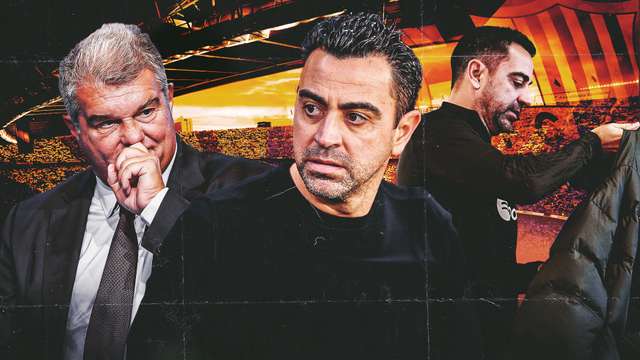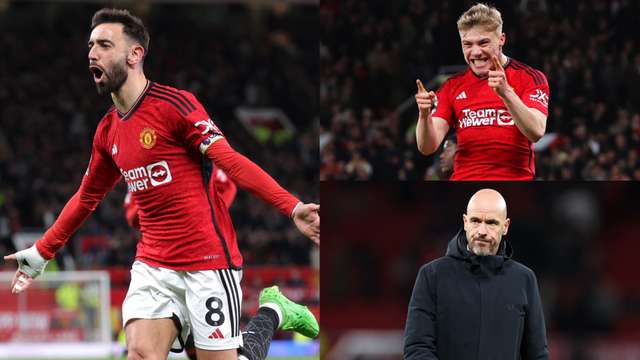“Pace and power, Man United, that’s what we are,” Ole Gunnar Solskjaer said in January, four matches into his caretaker role at the club.
“When we have players like we have with pace… that’s how we played with Andy Cole, Dwight Yorke, Ryan Giggs, and Becks (David Beckham) down the sides. We attack quickly when you can. That’s my philosophy as well.”
Throughout Solskjaer’s initial run of good results at Old Trafford, this was an effective strategy, the perfect antidote to the rigidity and cautiousness of his predecessor’s tactical approach.
United’s players were instructed to frantically scurry about, their simple mantra – push forward quickly and often – syncing neatly with the inevitable manager bounce following Jose Mourinho’s departure.
Confidence and assertiveness are important psychological components to any attacking strategy, and for a couple of months United looked self-assured under the Norwegian.
But when United’s form dropped off in April and May, Solskjaer’s emphasis on speed began to look hollow.
“That's always been the way I like to play football,” he said in the same interview in January. “Get the ball up in the opposition's half as soon as you can, as quickly as you can. If you score, fantastic. If not, then you've got to have patient build-up play. But attack quickly.”
All of a sudden those comments read a little vague, a little too focused on the mental aspects of the sport.
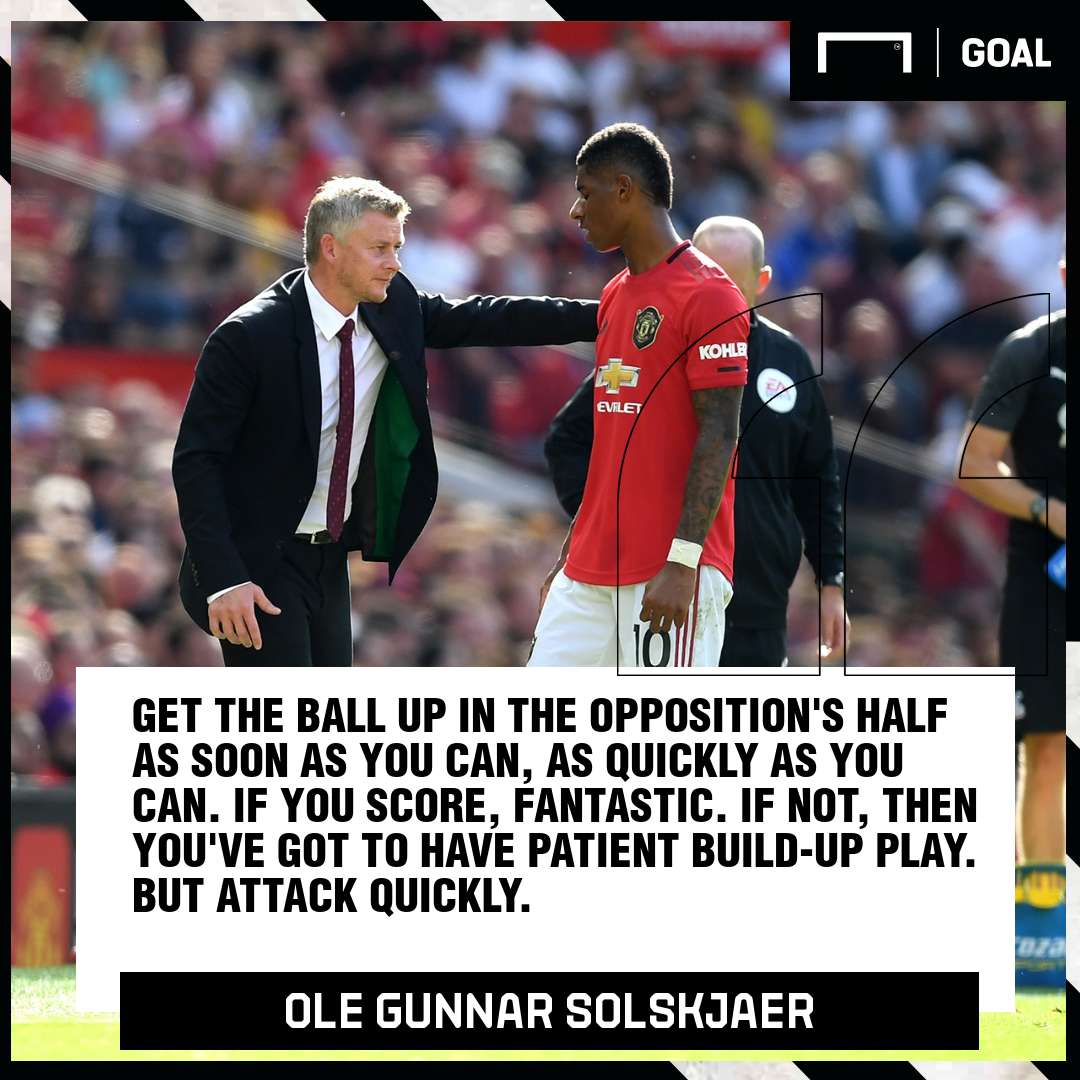
Just as Solskjaer’s references to Sir Alex Ferguson in post-match interviews quickly went from charming to grating, his tactical reliance on that treble-winning team lost its veneer of astuteness and began to look one-dimensional.
The problem with basing your tactical philosophy on the 1990s is that it’s currently 2019. Football has changed a lot since Solskjaer’s heyday.
Following a summer of doubling down on pace and power, the good news is that Solskjaer has developed a clear identity in just a few months at the club; succeed or fail, we will know exactly what Solskjaer was trying to build, and exactly on what to judge his tenure. That is no mean feat given the apathy that has engulfed Old Trafford for much of the past six years.
Signing Daniel James, placing trust in Anthony Martial, and heavily involving the club’s academy graduates has created a sense of directional clarity that Solskjaer hopes, following more intense fitness coaching, will make them title challengers within a year or two.
It won’t.
Ferguson’s focus on speed was from a Premier League era of considerably simpler tactics. Matches were more evenly contested, both possession and pressing were sporadic and disordered, and the predominance of basic 4-4-2s betrayed an expectation that individuality would win matches.
By contrast, modern English football is distinctly territorial, with the Big Six expected to hold 60 percent of the ball in games defined by possession versus counters, while attacking interplay is the result of complex tactical organisation – a mixture of high-intensity pressing and intricate passing moves.
The appearance of creative freedom at Manchester City and Liverpool, for example, is actually the product of fastidious systems training, of movements made habit through repetition.
Solskjaer hasn’t been in hibernation these last 20 years and will, of course, be aware of football’s tactical development, and yet United’s 2-1 defeat to Crystal Palace last weekend suggests attacking speed really is his only course of action.
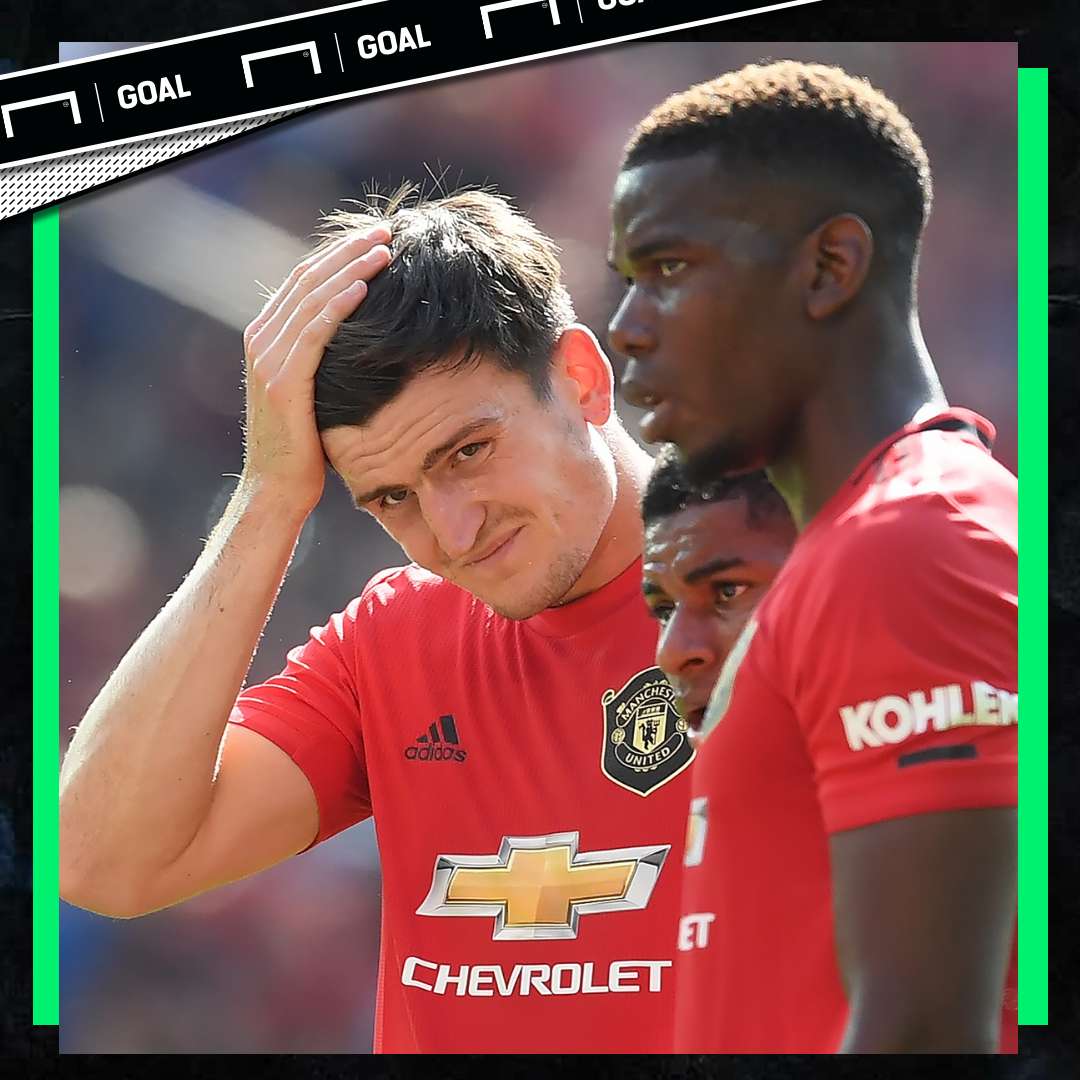
Palace, predictably, sat extremely deep at Old Trafford and, predictably, that completely negated United’s pace in the final third. There was no space for Martial, James, or Marcus Rashford, providing a tactical template for future visitors to Manchester.
It’s pretty simple, really: an era of possession-dominance at big clubs makes emphasis on pure speed redundant.
Solskjaer is not in immediate peril and small tweaks could make a difference, such as sitting Paul Pogba higher up the pitch or giving Juan Mata more minutes in claustrophobic matches such as last weekend’s.
Then again, one of the problems with a loosely structured emphasis on surging into the final third is a susceptibility to the ebb and flow of confidence – hence, the two distinct phases under Solskjaer in the second half of last season. Should more mid-table clubs frustrate Solskjaer’s team, their heads could drop and United – peculiarly prone to collapse – will fall away.
A 4-0 victory over Chelsea on the opening day gave the initial impression that United’s summer was a success and Solskjaer’s approach viable.
But Chelsea’s overly-expansive formation and porous midfield has become an early theme of Frank Lampard’s reign, taking the sheen off United’s start, before alarming performances against Wolves and Palace confirmed Solskjaer’s tactics – and the technical quality of his squad – have scarcely improved since the club won eight points from the final nine matches of last season.
Solskjaer’s obsession with a Ferguson-era ‘United Way’ isn’t just an interview technique, it’s a hazy tactical mantra ill-suited to modern football.
This is just the beginning of a transitional year for the manager, but unless he moves away from pace and power, he is unlikely to last the season.
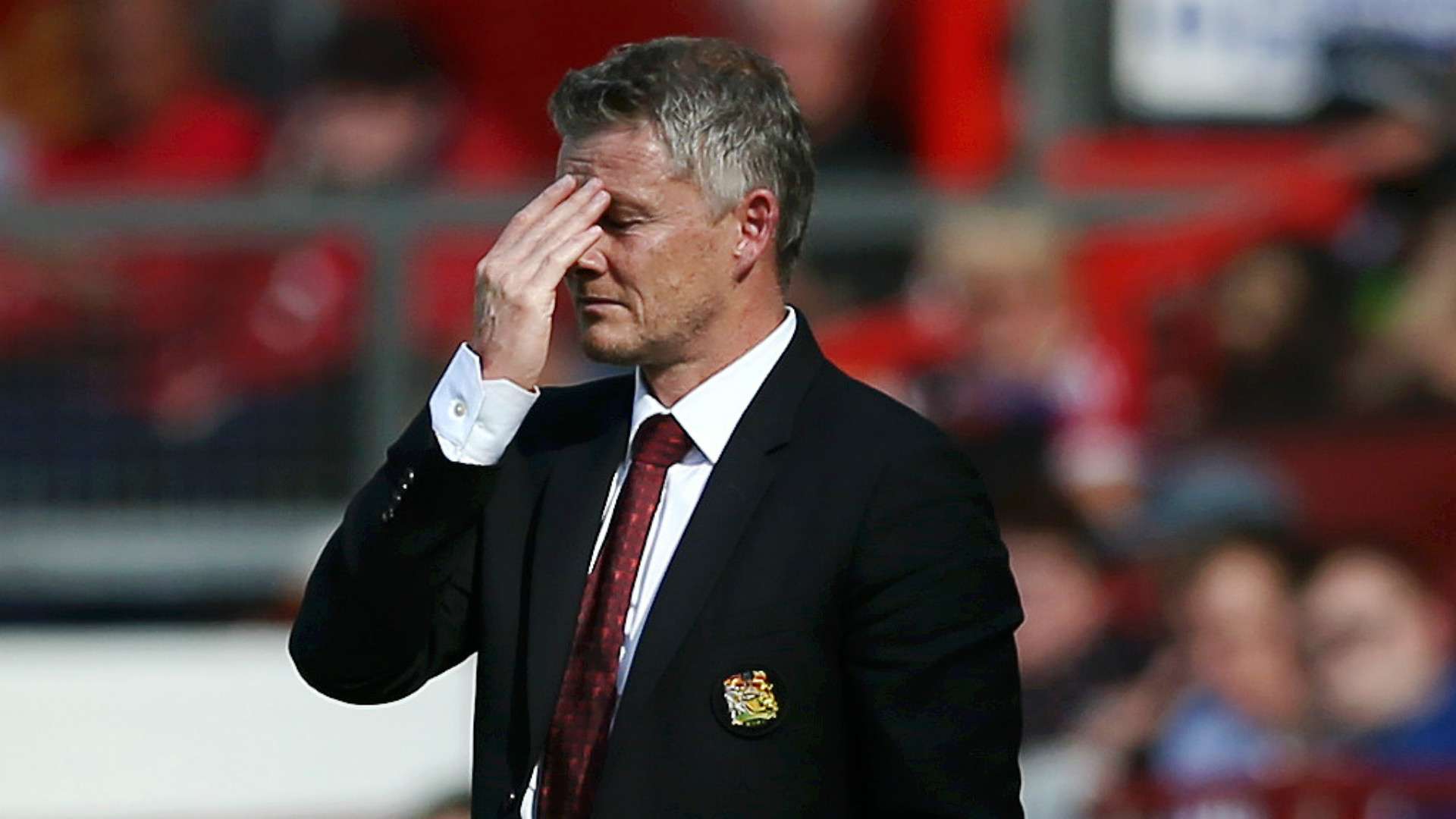




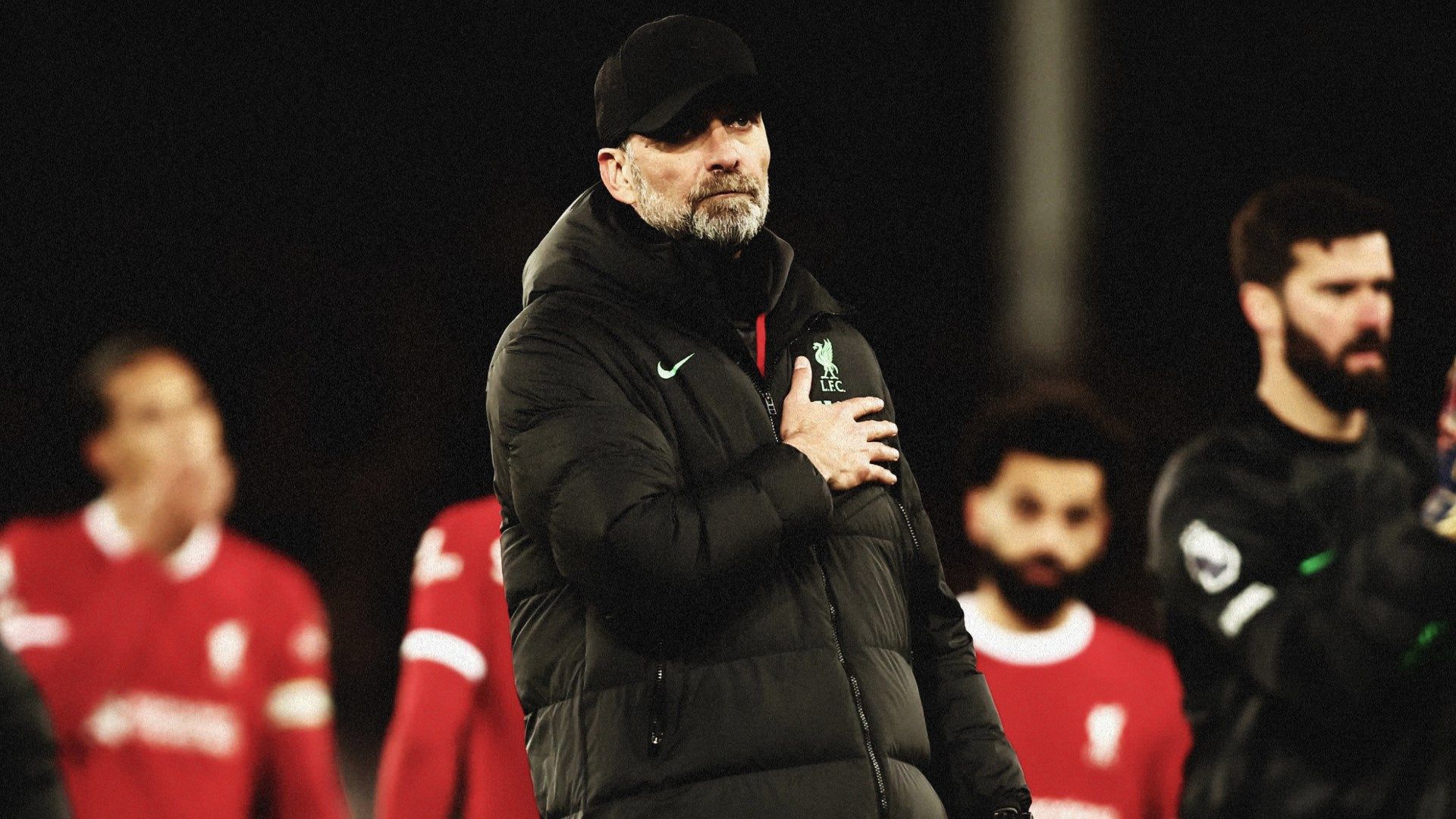.jpg?auto=webp&format=pjpg&width=640&quality=60)
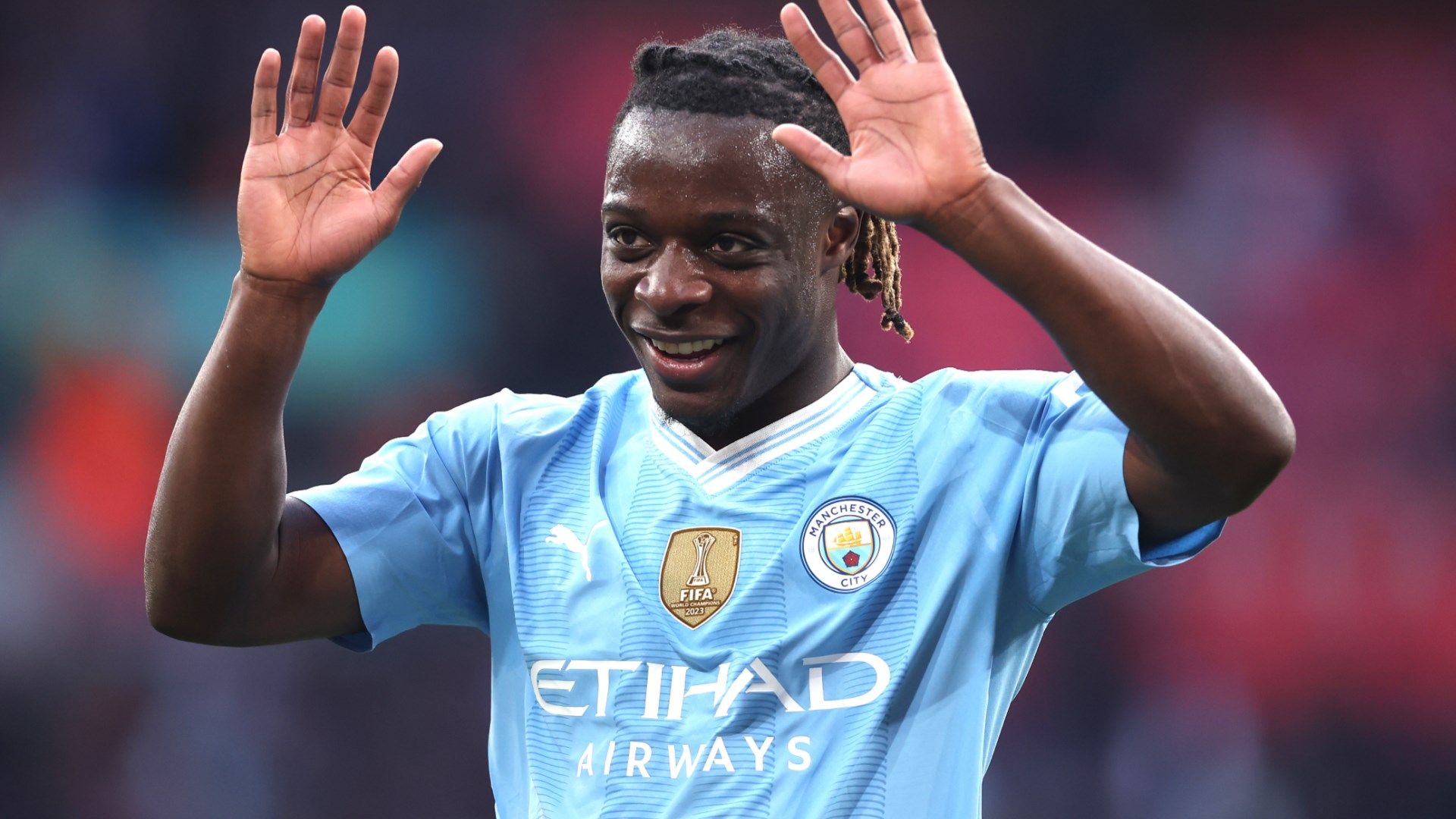.jpg?auto=webp&format=pjpg&width=640&quality=60)
